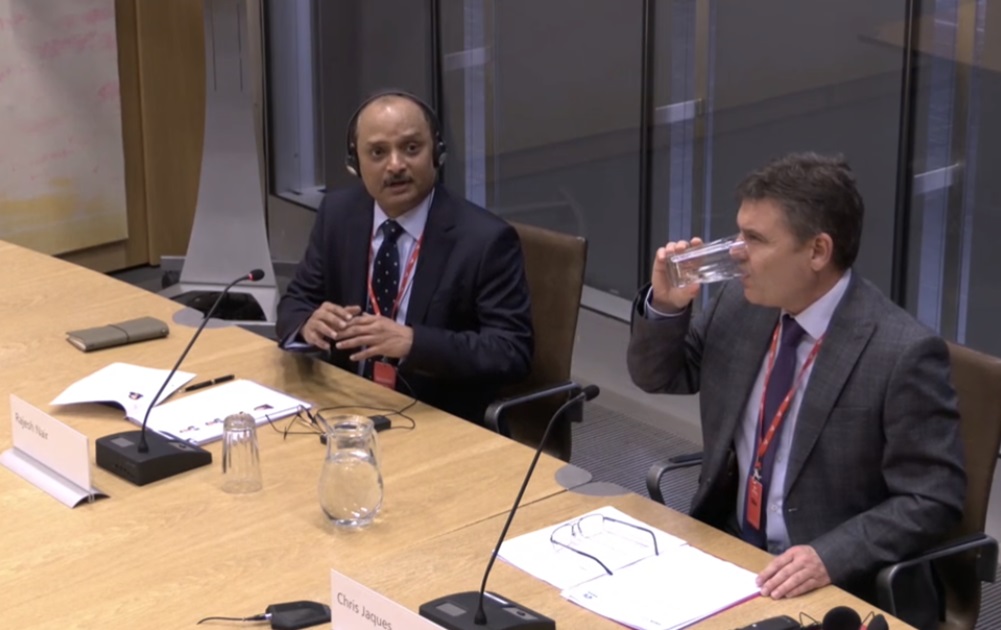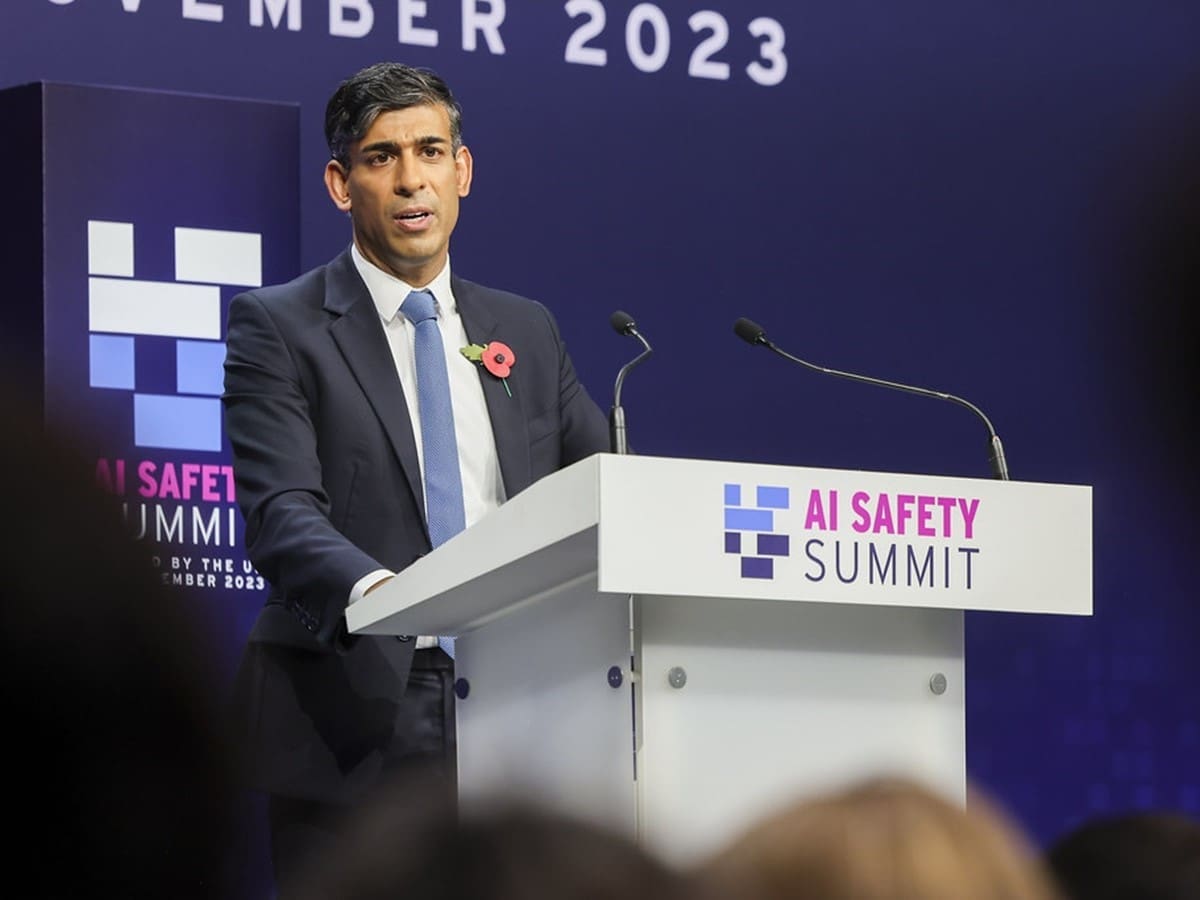UK Officials Prepare Fresh Sewage Crackdown With New Water Plan
The UK government is preparing to announce new measures to clean up rivers and waterways in a bid to show it’s cracking down on polluting sewage companies.

(Bloomberg) -- The UK government is preparing to announce new measures to clean up rivers and waterways in a bid to show it’s cracking down on polluting sewage companies.
Steve Barclay, Secretary of State for Environment, Food and Rural Affairs, is expected to announce an Accelerated Plan for Water, building on measures announced last April by his predecessor Therese Coffey. Before resigning in November, she put in place plans to lift the cap on how much water companies could be fined for polluting rivers and seas, and proposed banning disposable wipes that clog sewers.
An announcement on the new plan is imminent, according to people familiar with the matter, who asked to speak on condition of anonymity. One person said it may come as soon as next week, while another pointed to Parliament’s break from 8-19 February as a consideration.
Among the new steps laid out would be a whistleblower hotline to allow water company employees to anonymously call out wrongdoing, one person said.
Barclay has made tackling sewage spills a priority since he became Environment Secretary in November. Earlier this month, he met with water company executives to tell them that they would no longer be able to evaluate their own progress on tackling illegal river pollution. Campaigners have called for the Environment Agency to take over monitoring of water company permit compliance, a suggestion that was also welcomed by industry body Water UK.
Ministers are preparing to meet with Chris Weston, the new chief executive officer of Thames Water, the UK’s biggest water and sewage company. Thames has been at the center of a crisis that’s roiled the industry in the past 12 months, as mounting calls from the public and politicians to stop releasing sewage into waterways coincided with soaring debt costs.
“Thames Water’s performance is completely unacceptable and they must take urgent steps to turn this around. Its customers deserve better," Robbie Moore, minister for water and rural growth, told MPs in Parliament on Wednesday.
Moore said Thames Water is failing to meet its commitments to customers on eight of the 12 performance metrics measured by the regulator Ofwat, particularly on pollution and on ensuring a consistent supply of water.
It remains to be seen whether the new plan will take steps to curb river pollution from agriculture. Barclay’s top priorities include supporting farmers and cleaning up rivers. But agriculture and rural land is responsible for 40% of the pressure on rivers and waterways in England, according to the previous plan for water, while sewage spills account for 36% of pollution.
--With assistance from Kitty Donaldson.
UK Government agency failed to protect River Wye from chicken waste, court hears

Campaigners have accused a UK government agency of failing to apply the law and stop excess nutrients from polluting the River Wye, on the first day of a court hearing.
Anti-pollution charity River Action took the Environment Agency (EA) to court on Wednesday for a judicial review, claiming it is allowing destructive levels of nutrients from chicken manure to enter the Wye.
A judicial review is carried out when there is a dispute over whether a public body has acted lawfully.
While the hearing was at the Civil Justice Centre in Cardiff, the case was against a UK government agency.
Ecological crisis
David Wolfe KC, speaking on behalf of the claimants, said it was not in dispute that the River Wye was in an “ecological crisis” and the “single biggest contributor” to nutrient overload was agricultural run-off.
He argued the EA had failed to apply the Farming Rules for Water (FRfW), regulations issued by the Government’s Department for the Environment, Food and Rural Affairs (Defra), which make it a criminal offence to add more fertiliser to farmland than the soil requires.
“The FRfW are not being lawfully enforced by the defendant, which is allowing farmers to continue to break the law,” Mr Wolfe said.
“Nutrient run-off from agriculture continues to cause serious ecological damage.”
Breaches
When there have been breaches, Mr Wolfe said the EA had failed to require fixes, with no timeline given to become compliant, while farmers were not told they were in breach of the law.
Between January 2020 and October 2023, there were 515 farm inspections on the Wye – with 31% found to breach regulations.
The Wye is the fourth longest river in Britain and partly forms the border between England and Wales as it runs from central Wales to the Severn estuary.
It is estimated that about 20 million chickens are raised in the Wye catchment area at any one time – about 25% of UK poultry production.
A large amount of organic manure has been spread over the area leading to a substantial increase in levels of phosphorus in the soil.
When washed into the river by rainwater, the phosphorus causes prolonged algal blooms which turn the water an opaque green.
Ahead of Wednesday’s hearing, River Action campaigners gathered outside the court, displaying banners and banging drums, demanding that the EA steps up to stop the spread of excess nutrients.
Feargal Sharkey
They were joined by Feargal Sharkey, the pop star turned water quality campaigner.
He said: “The simple truth of the matter is that every river in England is dying.
“Every special area of conservation, every Site of Special Scientific Interest is failing. The system is failing to protect them.
“How far are we going to allow large companies to exploit the environment to their benefit and not necessarily ours?”
Explaining how he got involved in River Action, he said: “I wanted to go fishing and the river I wanted to fish in was in a bad shape.
“I wanted to do something about it, I wanted to scratch that itch. And every time I scratched that itch I got a bigger itch.
“I see a lack of political oversight of the laws that were created to protect the environment and that has to stop.
“We hope the court will agree with our assessment that the EA and Defra have failed to apply the law the way it has been written.
“(The Wye) should be one of the most protected in Europe and yet it is failing, people can now see algae blooms, clear toxicity of the river.
“This is not something happening in some far off country on the other side of the planet, it is happening here and the government agencies set up to protect it are allowing it to be destroyed.”
Downgraded
Charles Watson, the chairman and founder of River Action, said the status of river had already been downgraded – and without protection the only way it could go is it becoming a “dead river”.
“It’s frequently voted Britain’s favourite river and it’s been allowed to go into a death spiral,” he said.
“The very bodies that are supposed to support it have failed.
“This is our last line of defence, the court is the place we can go to try to save our rivers. People are desperately concerned about this.
“Anywhere else in Europe someone would be locked up in prison for what is happening here.”
The case was adjourned until Thursday.



































